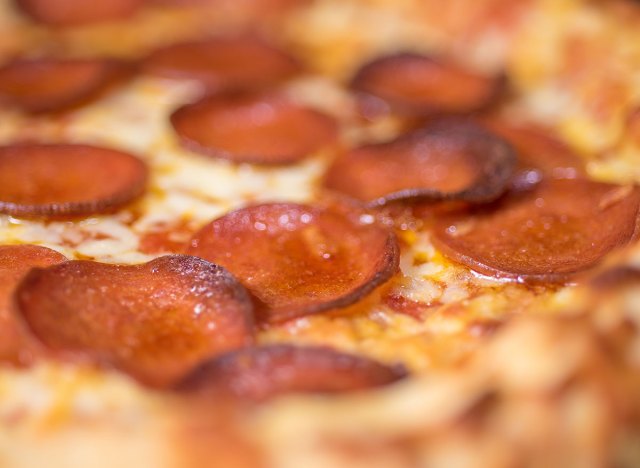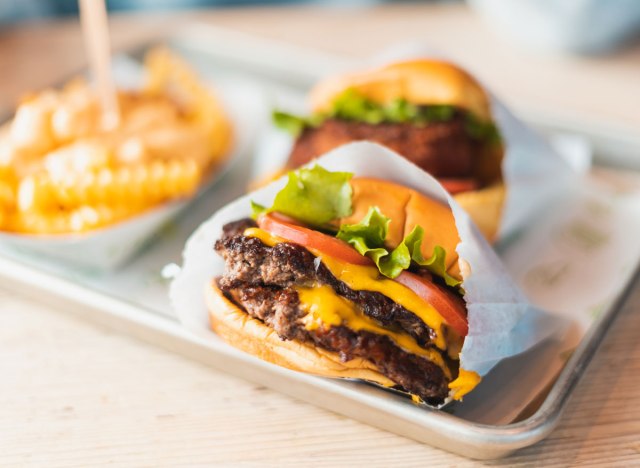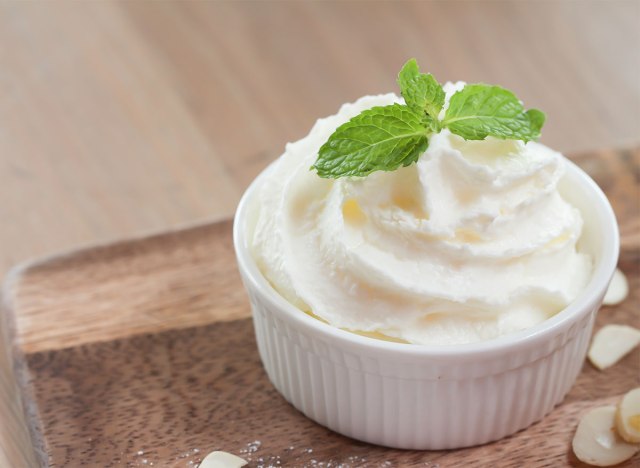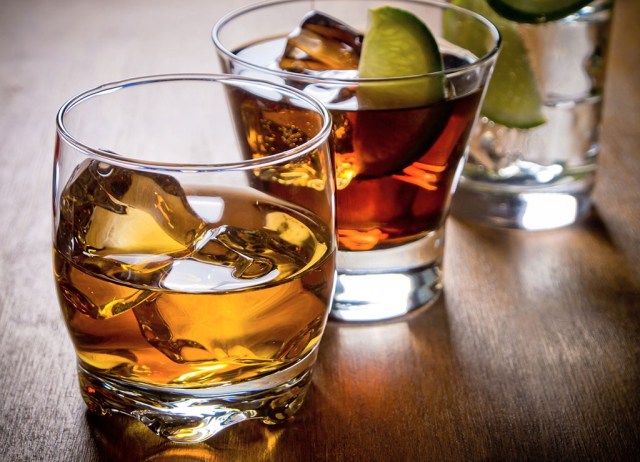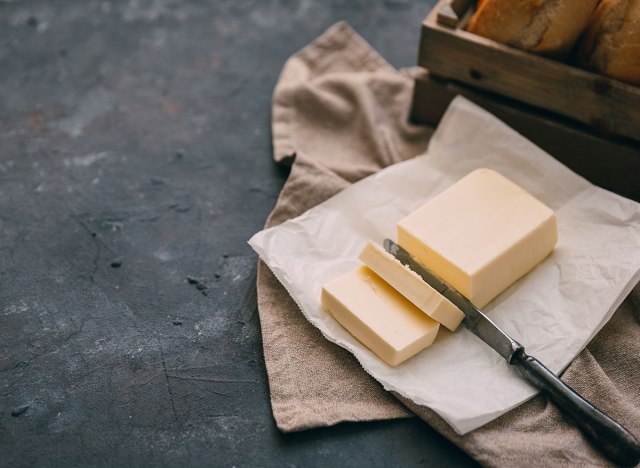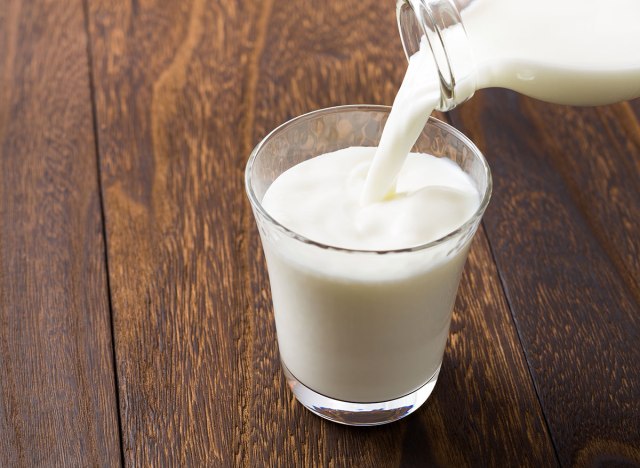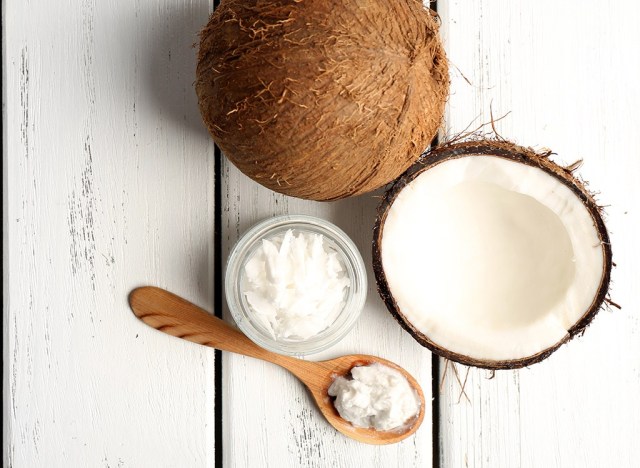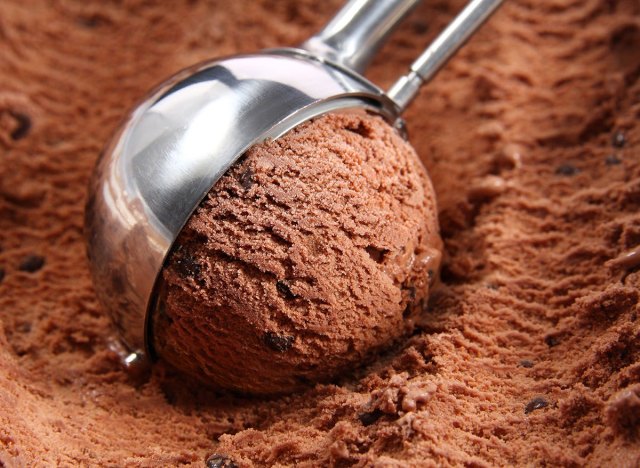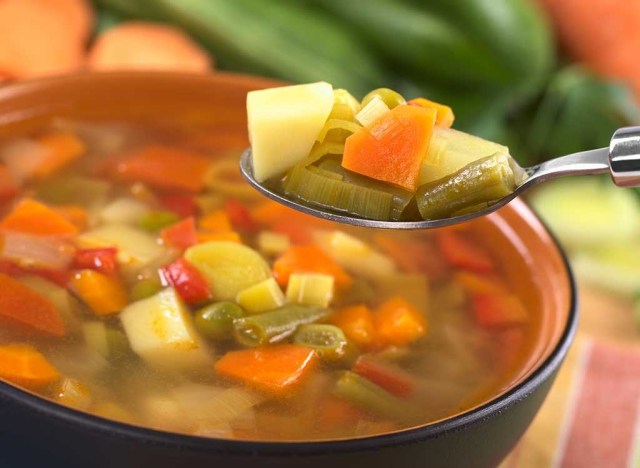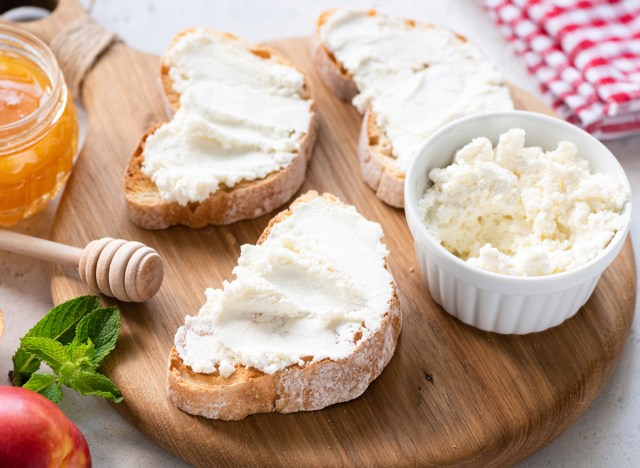The Worst Foods for Your Liver, According to Science
How often do you consider your liver while sitting down to dinner?
Unless your doctor has specifically told you that you have already been diagnosed with a liver issue—such as bile duct disease, cirrhosis, fatty liver disease, hemochromatosis, Hepatitis C, or Wilson Disease—most of us don’t think of our liver too often. Although maybe if you have taken part in binge drinking, you’ll crack a joke about a beer being at the expense of your liver.
Even still, your liver plays a crucial role in regulating the body’s functions. The liver regulates metabolism, converting the nutrients we get from our diets into substances the body can either use or store to use for later. The liver also is responsible for addressing toxic substances—either ensuring they’re released or turned into something better.
If you consistently eat some of the worst foods (and drink some of the worst drinks) for your liver, your health could decline.
Whether you have a diagnosed liver problem or are worried about doing potential damage to your liver through your diet, these are the top foods to avoid (or eat in moderation) for the sake of your liver. (And to make sure you’re doing all you can to make the healthiest meals, here are 21 Best Healthy Cooking Hacks of All Time.)
French Fries
Fatty foods—of all kinds—do not do your liver any favors. The liver is responsible for breaking down fats, converting them into energy, so too much fatty food could overexert the liver. It could also result in the development of fatty liver disease, which is the build-up of fat in your liver cells. Regularly eating french fries, which are high in saturated fat, can contribute to this problem, but can also result in inflammation in the long-term. Inflammation has been known to cause the liver to create scar tissue, a complication known as cirrhosis.
Instead of reaching for French fries, add more fiber to your diet. One cup of blueberries provides almost 4 grams of fiber, and this fruit has also been linked to reducing chronic injury of the liver.
Pepperoni
Saturated fat is one of the worst things for your liver and since processed meats such as pepperoni are high in saturated fat as a general rule, it’s best to steer clear of deli meats. However, you’ll want to avoid pepperoni in particular. Pepperoni is one of the worst offenders of high saturated fat content—with about 17.7 grams of saturated fat per 100 grams (89% DV).
According to the Fatty Liver Foundation, saturated fat is more “metabolically harmful” to the liver than other fats. Instead of eating pepperoni or other cured meats, try a hearty bowl of oatmeal, which can actually reverse the effects of fatty liver disease.
Cheeseburger
The cheeseburger has a bad reputation for being high in saturated fats, which according to the American Heart Association is mostly found in animal-based products and oils and can ultimately increase your risk of heart disease and stroke. Some fast-food burgers contain as much as 16 grams of saturated fat, so unless you’re making or cooking your burger yourself, you may want to avoid them.
Vegetables are hearty sources of fiber and contain little to no saturated fat, making them a perfect food choice when considering your liver. In fact, a natural compound found in broccoli and other cruciferous veggies—a compound called indole—has been linked to combating non-alcoholic fatty liver disease.
Looking for more helpful tips? Sign up for our newsletter to get daily recipes and food news in your inbox!
Whipped Cream
Sorry to break it to you, but there isn’t much that whipped cream is good for. You know, except for its delicious, sugary taste. But when it comes to looking at whipped cream from a health standpoint, there aren’t many—or any, really—benefits at all.
Whipped cream contains a lot of calories, sugar, fat, and saturated fat—about 23.2 grams per cup of cream. Like all other foods with high saturated fat contents on this list, you’ll want to avoid topping your desserts and Starbucks beverages with whipped cream for the sake of your liver.
Alcohol
The liver is responsible for filtering out toxins like alcohol. So, how could alcohol harm the liver if the liver filters it? Well, according to Nebraska Medicine, some liver cells die with each filtering of alcohol. Especially if you drink a lot over a long period of time, serious (and permanent) damage of the liver tissue can result.
However, there is some good news if you’re a coffee drinker. Reuters reports that drinking two additional cups of coffee a day is associated with a lower risk of developing liver cirrhosis. In fact, a 44% lower risk.
Reuters also reports that drinking more coffee daily doesn’t just reduce your risk; those two additional cups might also reverse liver damage already done from alcohol. Now, that’s a compelling reason to reach for two extra cups of Joe!
Butter
Like most animal products and byproducts, dairy can exacerbate liver issues. Unfortunately, this includes butter.
Not only does butter constitute as dairy, but it also contains high levels of saturated fat. Instead of cooking with butter, try replacing it with olive oil, which is high with the omega-3 fatty acids found to reduce liver enzyme levels. Olive oil can also aid in weight control and weight loss.
Whole Milk
One cup of whole milk has about 9.1 grams of saturated fat, not ideal for a person thinking about their liver. But milk, in general, isn’t a full-stop, no-go. Low-fat dairy, high in whey protein, may be crucial to avoid future damage to the liver.
Instead of drinking whole milk, try switching to a low-fat version, or switch to tea. Green tea is one of the most beneficial beverages you can drink—for your liver and for your general health as well. Regular ingestion of green tea has been found to improve blood markers for liver health.
Oilsl
Many plant-based oils, though they sound “healthy” because they are plant-based, are actually high in saturated fat. These include palm kernel oil, coconut oil, cocoa butter, and beef tallow.
Research suggests that certain chemicals found in avocados may fight off and slow down potential liver damage. Though the study published by Science Daily refers to full, fresh avocados, it’s possible that cooking with avocado oil might be a more meaningful alternative to palm and coconut oils.
Ice Cream
Actually, any dessert that has high levels of sugar should be avoided on behalf of your liver. However, most ice cream contains 92% DV for every 1/2 cup. If you have liver issues, you can’t afford those levels of saturated fat.
Other desserts to steer clear of are cake frosting and of course, any dessert featuring the aforementioned whipped cream.
Soup
It’s not that all soups are bad for you. But many soups that have a long shelf life in a can tend to have egregious amounts of sodium and high sodium intake is directly associated with liver issues.
Ingesting foods with too much salt, like processed and packaged soups, for example, could lead to fibrosis, which can result in liver scarring. Soups may be tempting because they can be an “easy” source of vegetables, but you’re better off going with fresh veggies rather than canned.
Ricotta Cheese
In general, cheese isn’t the best food choice for your liver, but it’s actually ricotta cheese that puts the nail in the coffin. With 10.3 grams of saturated fat per cup, ricotta cheese should really be avoided by anyone with liver issues.
If you’re craving cheese, nuts are a healthier snack choice. Plentiful sources of vitamin E, almonds, and walnuts can protect your body against fatty liver disease and even offer your heart some healthy cardiovascular benefits.
The post The Worst Foods for Your Liver, According to Science appeared first on .

